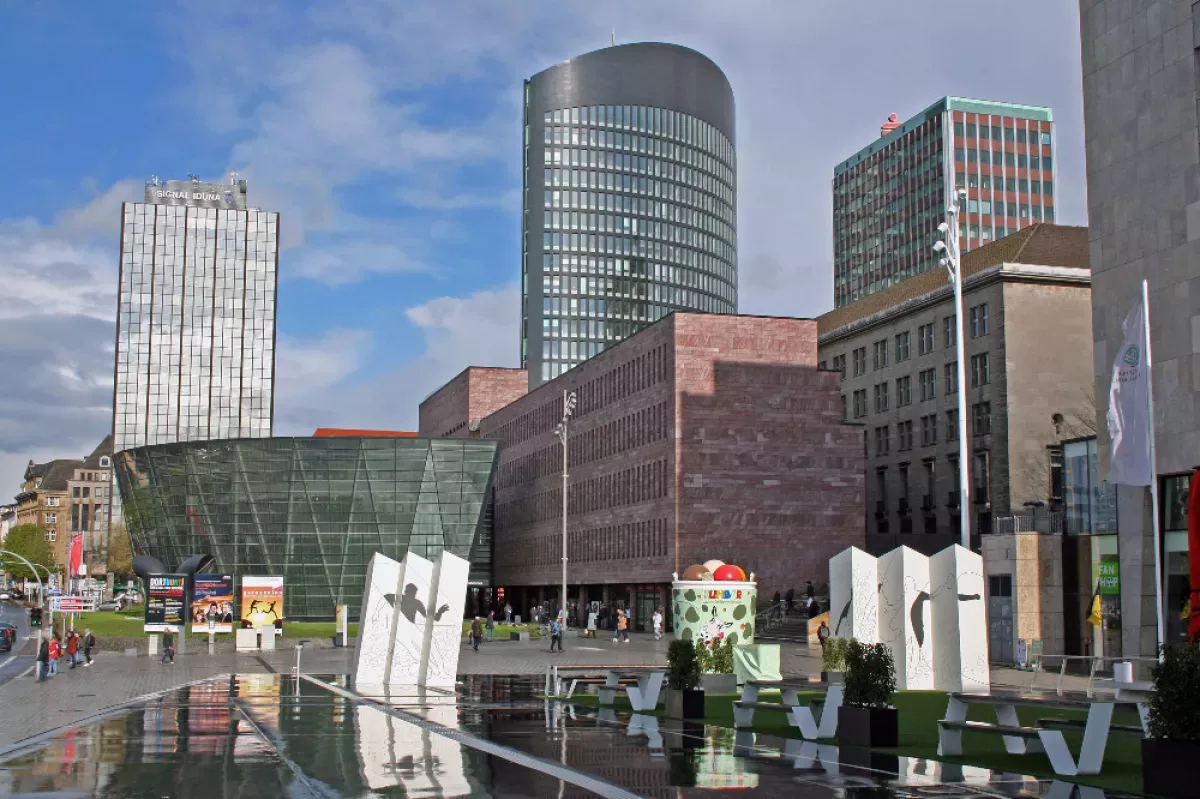Dortmund, Germany's ninth-largest city, is a major urban center located in North Rhine-Westphalia. As the largest city in both the Ruhr region and Westphalia, it holds significant administrative, commercial, and cultural importance, particularly as the eastern Ruhr's central hub. Positioned within the Rhine-Ruhr Metropolitan Region, a key economic area in the EU, Dortmund also ranks as the second-largest city within the Low German dialect area. Its location on the Emscher and Ruhr rivers further contributes to its regional prominence.
1900: Opening of the Old Synagogue
In 1900, the Old Synagogue, one of the largest Jewish houses of worship in Germany, opened in Dortmund.
1904: Population Exceeds 100,000
In 1904, Dortmund's population exceeded 100,000 for the first time.
1904: Construction of the first opera house
In 1904, the first opera house was built in Dortmund, though it was later destroyed in World War II.
1905: Population Rise
In 1905, Dortmund's population rose to 379,950 as the town expanded into a city during the industrialization of Prussia.
1905: Annexation of Municipalities
Starting in 1905, independent municipalities began to be gradually annexed into Dortmund.
1908: Era of Construction Ends
In 1908, the era of construction ended, with the majority of buildings in the Kreuzviertel originating from the turn of the 20th century (1884 to 1908).
1920: Resistance to Kapp Putsch
In 1920, Dortmund became one of the centers for resistance to the Kapp Putsch, a right-wing military coup.
January 1923: Occupation of the Ruhr
In January 1923, French and Belgian troops occupied the Ruhr, including Dortmund, due to Germany's failure to meet Treaty of Versailles reparations demands.
August 1925: End of Ruhr Occupation
In August 1925, the occupation of the Ruhr by French and Belgian troops came to an end.
1927: City acquisition of the Rombergpark
In 1927-1929, the city acquired the Rombergpark and director Richard Nose enhanced it by a small herb garden.
1928: Hörde coat of arms
The borough of Hörde, located in the south of Dortmund and independent until 1928, has its own coat of arms.
1929: City acquisition of the Rombergpark
In 1927-1929, the city acquired the Rombergpark and director Richard Nose enhanced it by a small herb garden.
1929: Hörde becomes part of Dortmund
In 1929, Hörde, which was originally a separate town, became a borough in the south of the city of Dortmund.
1933: Start of Imprisonment at Steinwache
In 1933, the Steinwache prison began imprisoning people under National Socialism. The prison became known as "The hell of western Germany".
1933: Nazi Era Begins
In 1933, with the beginning of the Nazi era, mayors in Dortmund were installed by the Nazi Party.
1938: Destruction of the Old Synagogue
In 1938, during Nazi Germany, the Old Synagogue in Dortmund was destroyed.
1941: Transfer of Children to "Children's Specialist Department"
In 1941, an additional 229 children were murdered in the "Children's Specialist Department", which was transferred from Marburg.
September 1943: Mass Execution of Polish POWs
In September 1943, the local Gestapo carried out a mass execution of 17 Polish POWs in Dortmund after they escaped from the Oflag VI-B POW camp but were recaptured.
March 1945: Devastating bombing raids
In March 1945, Dortmund experienced devastating bombing raids that destroyed 98% of the buildings in the inner city centre. These raids, involving over 1,110 aircraft, were the largest for a single target during World War II.
April 1945: Allied Ground Advance and Capture of Dortmund
In April 1945, the Allied ground advance reached Dortmund, with the US 95th Infantry Division attacking the city on April 12, 1945. After facing stubborn German defense, they completed the capture of the city on April 13, 1945.
1945: Post-War Administration
After World War II, in 1945, the military government of the British occupation zone installed a new mayor and a municipal constitution in Dortmund.
1945: End of Imprisonment at Steinwache
In 1945, the Steinwache prison stopped imprisoning people under National Socialism, after having imprisoned more than 66,000 people between 1933 and 1945.
1945: Westfälische Rundschau first publication
In 1945, the Westfälische Rundschau (WR) newspaper was first published in Dortmund.
1946: Part of North Rhine-Westphalia
In 1946, Dortmund became part of the new state (Land) of North Rhine-Westphalia in the British zone of occupation of Germany.
1948: Construction Before 1948
Over 80% of all housing in the Kreuzviertel was constructed before 1948.
1949: Ruhr Nachrichten foundation
In 1949, the Ruhr Nachrichten (RN), a conservative daily newspaper, was founded in Dortmund.
1950: Rebuilding of the Rombergpark
Starting in 1950, director Gerd Krüssmann rebuilt the Rombergpark as an arboretum after it was badly damaged in World War II.
1953: Foundation of the Dortmund Zoo
In 1953, the Dortmund Zoo was founded next to the Rombergpark.
1959: Westfalenpark Opening
In 1959, the Westfalenpark was first opened as the second Bundesgartenschau (BUGA) in North Rhine-Westphalia. The park also features a chair lift that opened in 1959 and runs on Sundays.
1965: Peak Population
In 1965, Dortmund's population reached 657,804.
1966: Borussia Dortmund win UEFA Cup Winners' Cup
In 1966, Borussia Dortmund won the UEFA Cup Winners' Cup.
1966: Reopening of Opernhaus Dortmund
In 1966, the Opernhaus Dortmund was reopened after being destroyed in World War II.
1968: Foundation of TU Dortmund
In 1968, TU Dortmund (Technical University of Dortmund) was founded in the southern part of the city.
1969: Foundation of the LWL-Industriemuseum
In 1969, the LWL-Industriemuseum was founded in Dortmund.
1971: Creation of Dortmund University of Applied Sciences and Arts
In 1971, the Dortmund University of Applied Sciences and Arts was created through a merger of several institutions of higher learning.
1975: Division into Administrative Districts
Since 1975, Dortmund is divided into twelve administrative districts, each with its own elected district council and mayor.
1975: Administrative Districts
Since 1975, Dortmund is divided into twelve administrative districts.
May 1980: Establishment of Dortmund Giants
On May 22, 1980, the Dortmund Giants, an American football team from Dortmund, was established.
1982: Start of Sparkassen Chess-Meeting
In 1982, the Sparkassen Chess-Meeting began being hosted in Dortmund.
1987: Closure of Pit Minister Stein
In 1987, the pit Minister Stein closed in Dortmund, marking the end of over 150 years of coal mining.
1994: Dortmund Giants in 2. Bundesliga
In 1994, the Dortmund Giants spent the season in the 2. Bundesliga before dropping to the third tier Regionalliga West.
1997: Borussia Dortmund win UEFA Champions League and Intercontinental Cup
In 1997, Borussia Dortmund won the UEFA Champions League and the Intercontinental Cup.
1997: Return to 2. Bundesliga
In 1997, the Dortmund Giants returned to the 2. Bundesliga for five seasons.
1999: End of SPD Plurality
From 1999, the SPD lost its plurality in the city council.
2000: Big Tipi at Expo 2000
In 2000, the 35-meter-high Big Tipi was brought to Dortmund from the Expo 2000 in Hanover to attract families, though low apartment prices suggest otherwise.
2001: Beginning of the Phoenix See Project
In 2001, a new era began for the Hörde district in Dortmund with the start of the Phoenix See project, ending 160 years of industrial history.
2001: Final Season in 2. Bundesliga
In 2001, the Dortmund Giants played their final season in the 2. Bundesliga as the Dortmund B1 Giants, a combined team with the Bochum Cadets.
2002: Konzerthaus Dortmund listed
Since 2002, the Konzerthaus Dortmund has been operated by Theater Dortmund and is listed in the ECHO list.
2004: Return of SPD Plurality
In 2004, the SPD regained its plurality in the city council.
2005: Laying of the First Cornerstone on the Phoenix area
In 2005, the first cornerstone was laid on the Phoenix area.
August 2007: Dortmund admitted to AGFS
On August 8, 2007, Dortmund was admitted to the German "Association of Pedestrian and Bicycle-Friendly Cities and Municipalities in NRW" (AGFS).
2007: Love Parade moves to Ruhr Area
In 2007, after negotiations, it was announced that the Love Parade would move to the Ruhr Area for five years (2007–2012); Essen hosted it in 2007.
April 2008: Opening of the east-west underground light rail line
In April 2008, the newly constructed east–west underground light rail line was opened in Dortmund, completing the underground service in the city centre and replacing the last trams on the surface.
2008: Love Parade in Dortmund
In 2008, the Love Parade took place on the Bundesstraße 1 under the motto Highway of Love. The Turkish electronic scene was represented by its own float, called "Turkish Delights". 1.6 million visitors attended the parade.
2009: Goethe-Gymnasium becomes a NRW Sportschule
From 2009, the Goethe-Gymnasium, which was founded in 1867, has been a NRW Sportschule focused on sports.
2009: Classification as Node City
In 2009, Dortmund was classified as a Node city in the Innovation Cities Index and recognized as the most sustainable city in Germany.
2009: Dortmund classified as Node city
In 2009, Dortmund was classified as a Node city in the Innovation Cities Index published by 2thinknow.
October 2010: Launch of Flooding of the Phoenix See
On October 1, 2010, the launch of the flooding of the Phoenix See was celebrated in Dortmund.
2010: Museum am Ostwall Relocation
In 2010, the Museum am Ostwall (formerly known as Museum am Ostwall) relocated to the Dortmund U-Tower. The museum houses a collection of modern and contemporary art.
2010: Union Viertel and RUHR.2010
In 2010, the area around the U-Tower called "Union Viertel" was part of the Creative.Quarters Ruhr and rooted in the European Capital of Culture RUHR.2010.
2010: Opening of Dortmunder U
In 2010, the art and creative center Dortmunder U opened, serving as a widely visible beacon and strongly benefiting the development of the Union District.
May 2011: Completion of the Phoenix See
Since May 9, 2011, the fences disappeared and the Phoenix See has been completed.
2011: Population Decline
In 2011, Dortmund's population fell to just under 580,000 due to post-industrial decline.
2011: Correction of Population Figures
In 2011, data from the EU-wide census revealed inaccuracies in German population figures, resulting in a statistical "loss" of 9,000 inhabitants in Dortmund after correction.
2012: End of Love Parade in Ruhr Area
2012 was the last year for which the Love Parade was supposed to be held in the Ruhr Area, after it had moved there in 2007 for five years.
2012: Population and Immigrant Figures
As of 2012, Dortmund had a population of 571,403, with about 177,000 (roughly 30%) being of non-German origin.
2012: Dortmund ranked among most livable cities in Germany
In 2012, Dortmund ranked tenth in a study of the most livable biggest cities in Germany, cited for its sport, gastronomy, and shopping opportunities.
November 2013: Evacuation Due to World War II Bomb
In November 2013, specifically November 3rd, more than 20,000 people were evacuated in Dortmund after a 4,000-pound bomb from World War II was discovered and safely defused.
2013: Westenhellweg Visitor Count
In 2013, Westenhellweg was Germany's most frequented shopping street, with nearly 13,000 visitors per hour.
December 2014: Immigrant Population Statistics
As of December 31, 2014, this table shows the number of first and second generation immigrants in Dortmund by nationality.
2014: Dortmund acclaimed as the most sustainable city in Germany
In 2014, Dortmund was acclaimed as the most sustainable city in Germany.
2014: Return to Oberliga
In 2014, the Dortmund Giants finished the season without a win and had to return to the Oberliga.
August 2015: Sony Music acquires Century Media Records
In August 2015, Century Media Records, headquartered in Dortmund, was acquired by Sony Music for US$17 million.
2015: Dortmund student life survey
In a 2015/2016 survey centered on student life in Germany, Dortmund ranked as seventh-best.
2016: Eisadler Dortmund in Oberliga
In 2016, Eisadler Dortmund played in the Oberliga, which is the third level of ice hockey in Germany.
2016: Population Back Above 600,000
In 2016, it was announced that the population of Dortmund was back above 600,000.
2016: Dortmund student life survey
In a 2015/2016 survey centered on student life in Germany, Dortmund ranked as seventh-best.
September 2017: The New York Times praises the city of Dortmund
In September 2017, The New York Times praised the city of Dortmund as the hidden star of structural change.
November 2017: Dortmund Ranked Among Most Livable Cities for Expats
In November 2017, a study ranked Dortmund as the seventh most livable city in Germany for expats.
2017: Overnight stays in Dortmund
In 2017, Dortmund recorded more than 1,450,528 overnight stays, establishing itself as one of the most popular destinations in North Rhine-Westphalia.
2017: Population Increase
In 2017, Dortmund's population was 601,402, making it the eighth largest city in Germany.
June 2019: 37th Evangelischer Kirchentag
In June 2019, Dortmund hosted the 37th Evangelischer Kirchentag – German Evangelical Church Assembly.
2019: Passenger traffic at Dortmund Airport
In 2019, Dortmund Airport served 2,719,563 passengers, mainly for low-cost and leisure charter flights.
2020: Emscher Renaturation Aim
By 2020, the public water board Emschergenossenschaft aims to finish the main work of the Emscher River renaturation project, which has a financial frame of 4.5 billion Euro.
2022: Christian Denominations in Dortmund
As of 2022, the largest Christian denominations in Dortmund were Protestantism (23.7%) and Catholicism (22.6% of the population).
September 2025: Mayoral Election
In September 2025, specifically on the 14th and 28th (runoff), the most recent mayoral election was held.
2025: Election of Alexander Omar Kalouti
In 2025, Alexander Omar Kalouti of the CDU was elected as the current mayor of Dortmund.
Mentioned in this timeline
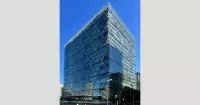
Sony is a Japanese multinational conglomerate based in Tokyo Its...
Germany officially the Federal Republic of Germany is a nation...

Football is a family of team sports primarily involving kicking...
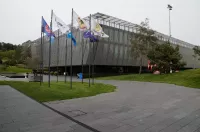
FIFA the F d ration Internationale de Football Association is...
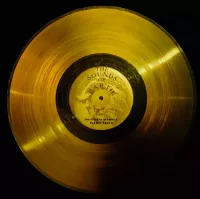
Music is a cultural universal involving the arrangement of sound...

War is defined as an armed conflict involving the armed...
Trending

33 minutes ago Ryan Reynolds and Rob McElhenney Celebrate Five Years of Wrexham Ownership.
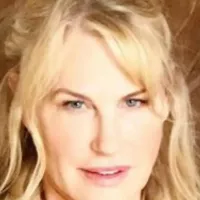
33 minutes ago JFK Jr. and Daryl Hannah's tumultuous relationship explored in 'Love Story' series.

33 minutes ago Monica White's story: Dating app killer and her survival, new Lifetime movie.
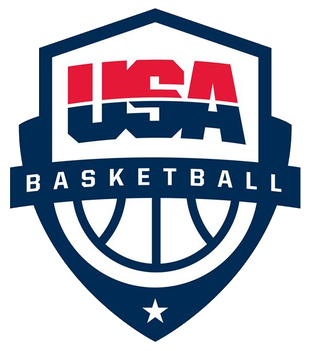
33 minutes ago ASU Women's Basketball Defeats Arizona in Overtime Thriller: Wildcats Fall Short.
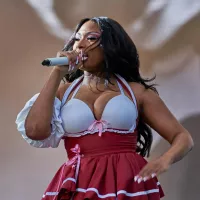
2 hours ago Megan Thee Stallion Finds Love, Feels Comfortable with Klay Thompson, NBA Star
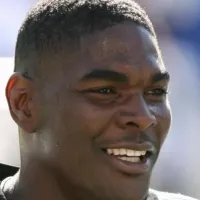
2 hours ago Dolphins near decision on Tua Tagovailoa's future; Johnson's thoughts relevant.
Popular

Kid Rock born Robert James Ritchie is an American musician...

Pam Bondi is an American attorney lobbyist and politician currently...
Randall Adam Fine is an American politician a Republican who...
The Winter Olympic Games a major international multi-sport event held...

Barack Obama the th U S President - was the...

XXXTentacion born Jahseh Dwayne Ricardo Onfroy was a controversial yet...
